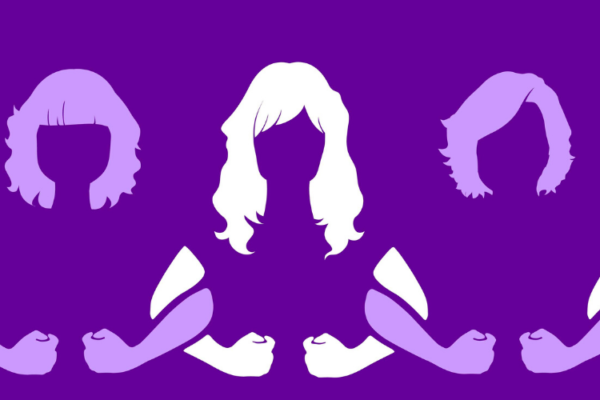The majority of customers you’ll meet at the club will make you smile. But, unfortunately, there will always be a few who make you wish you were at home.
Unpleasant customers pop up in any career. However, they can be even more frustrating in the club. Knowing how to deal with them can be difficult when you’re at work, though, as in the moment, you might freeze up and not know how to proceed.
Today, we’re looking at what you can do if a club customer starts to push your boundaries.
Scroll down to learn more about dealing with difficult clients at the strip club.
Listen to your gut feelings
Have you ever been dancing for a customer and had a gut feeling that something was wrong? Sometimes, our bodies know that something is off before our mind does. If something starts to feel wrong, don’t ignore the signal. Your intuition is something to be trusted.
Distance yourself from the punter and politely decline any advances. If they cross any boundaries, you should alert other dancers or the bouncers and get them removed from the club.
Set boundaries with customers
Setting boundaries with customers is key to a mutually satisfying experience. While all punters should know to avoid inappropriate touching or sexual comments, some can’t help themselves.
If a customer pushes your boundaries, tell them “No” and walk away. Physically removing yourself from the punter gives them a clear signal you’re not interested in them and shows them that their behaviour is unacceptable.
You should also alert the floor manager or bouncer to their behaviour, but this isn’t possible in all clubs. If you’re in a club where security doesn’t take notice of dancers on the floor, you need to make your discomfort clear with the punter and walk away.
Prepare talking points for customer interactions
Talking to punters can feel awkward, especially if you’re new to dancing. Having a few pre-prepared talking points and questions puts you in control of the interaction, giving the punter fewer chances to be inappropriate or disrespectful.
Most punters actually prefer to talk about themselves. After all, they’re paying for your attention and probably want to feel special. So, ask about their preferences, what they enjoy, and what’s on their mind.
A common mistake many dancers make is talking about their own problems. While your problems and worries are valid, talking about them to a customer isn’t ideal. They’re at the club to escape reality. If you start the dance with an earful of your real-life problems, it won’t sweeten the mood or make them likely to tip you.
When in doubt, put the focus on the punter.

Work with the other dancers
Unfortunately, security isn’t always great at looking out for dancers. So, you might have to take your comfort into your own hands. But you don’t always have to work alone. You can join forces with other dancers and watch each other’s backs.
Discuss any incidents or worries with your colleagues. Creating a safe space to talk with each other will strengthen your bonds backstage and on the floor.
After all, you’re all in the same environment, and it benefits everyone if difficult or demanding customers are removed ASAP.
Know that you always have the right to walk away
When you’re one-to-one with a customer, it might feel like you must smile and go along with their uncomfortable behaviour. But remember that you always have the right to leave — if someone is acting strange, you do not have to put up with it.
Learning to assert your boundaries and say no is harder than it seems, especially if you’re new to the industry. Punters can be intimidating, but your safety is always worth more than your feelings.
You can use a few tips and tricks to build your confidence when saying no. These include:
- Using assertive language and “I” statements (e.g. “I’m not comfortable with that”)
- Being consistent with your boundaries
- Practice self-awareness and recognise when you’re feeling uncomfortable
- Reflect on your values and priorities
- Write a list of boundaries to remind yourself before you start work
Learning to set and enforce boundaries doesn’t happen overnight. Sometimes, it takes time to feel natural. Don’t be hard on yourself if you let your boundaries slip a few times. Keep trying, and it’ll soon feel like second nature.
Practice self-care after work
Though most shifts leave dancers energised and fulfilled, it’s normal to feel stressed out after dealing with difficult clients at the strip club. However, you must put your well-being first after a tough shift, or you could harm your mental and physical health.
Self-care looks different for everyone, but popular techniques include taking a relaxing bath, eating a nutritious meal, or watching your favourite show on TV.
The aim of self-care is to keep yourself mentally, physically, and emotionally healthy. So, any activities that contribute to this goal are a must!

Talk with a support group
If an interaction with a customer has left you feeling shaken, talking to someone you trust is vital. This could be friends and family, other dancers, or a sex-positive therapist or counsellor.
Getting your thoughts and feelings out of your mind can help you process your feelings and create an action plan. While professional therapists and counsellors can provide expert assistance, even talking with your friends and family can help you clear your mind after a bad shift.
Talking with other dancers is an important outlet. Unlike professionals and friends or family, dancers have firsthand experience with the problems you’re facing. This means they can empathise with you and help you create industry-specific solutions.
If you don’t want to reach out to others but want to hear about their experiences, forums are an excellent place to lurk. For example, r/Strippers is a non-judgemental place for dancers worldwide to discuss their thoughts and feelings about their careers.
The takeaway
Whether you’re a newbie dancer or an experienced pro, dealing with difficult clients at the strip club is a skill you need to keep building. We hope these tips have helped you develop your work strategies. When in doubt, remove yourself from the situation and practice self-care.
Read more sex work-friendly content on the Vivastreet blog now.





